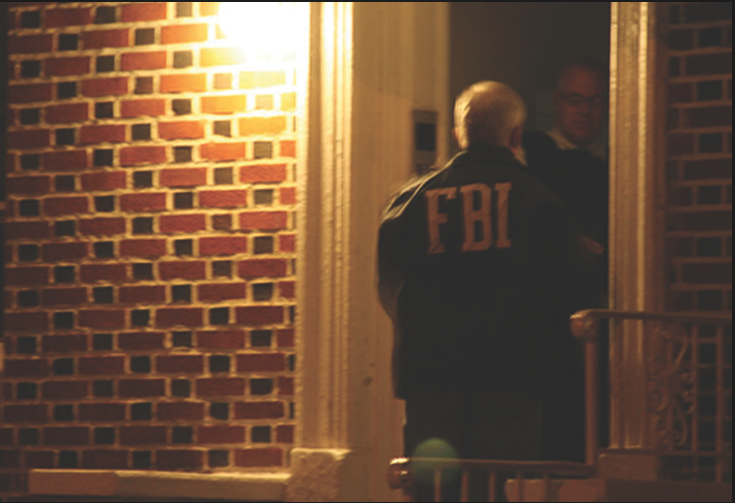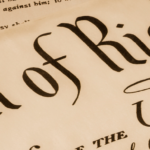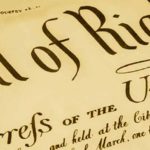The 4th Amendment Protects Against Unreasonable Searches and Seizures.
If the police or federal agents search a home without a warrant or with a defective warrant, a defense lawyer can file a motion to suppress the evidence.

Suppressing Illegally Seized Evidence
The DEA believed Ricky Brown to be a heroin dealer. A cooperating witness set up a controlled buy where agents and police planned to observe a heroin drug transaction between Mr. Brown and a cooperating witness. On the day the deal was to occur, several recorded calls were made between Brown and the witness. After Brown’s vehicle and another SUV left Brown’s home and while traveling to a pre-determined location, police stopped the vehicles and searched them. Mr. Brown had a large sum of cash but no heroin. Another car, driven by a different person but in line with Brown’s vehicle, contained a black box that contained heroin. The defense filed a Motion to Suppress Evidence Seized from a Home. The court denied the motion.
The federal agents arrested Mr. Brown and the other men and secured a search warrant to search Mr. Brown’s home. The search warrant was supported by an affidavit that set forth facts regarding the investigation and tying Mr. Brown to drug dealing. When the agents searched the home, they found two guns, 60 grams of marijuana, a large amount of cash, a scale, and other items. The agents did not find any heroin. Mr. Brown was convicted at trial and sent to prison.
Brown filed a Motion to Suppress, arguing that there was no probable cause to believe there was evidence related to the heroin transaction. The district court judge denied the motion and allowed the evidence. The court ruled that the affidavit was sufficient to establish probable cause. The court found that even if the affidavit had not been sufficient, the “good faith exception” would apply. The “good faith exception” is a rule that allows evidence even if the agents technically violated the law because they had good faith or good intentions.
The Court of Appeals found that the lower court’s ruling should have suppressed evidence seized from a home.
The United States Court of Appeals reversed the district court and ruled that the district court judge should have suppressed the evidence. The Court ruled that the 4th Amendment protects citizens from unreasonable searches and seizures, especially in our homes. The appellate judges noted that the connection between criminal activity and the home must be specific and concrete, not “vague” or “generalized.” In this case, the agents lacked specific information tying the house to the sale or delivery of heroin.
The court rejected using the Good Faith Exception as an excuse to search the defendant’s home without a warrant. For the Good Faith Exception to apply, there must be some evidence to establish a connection between the criminal activity and the home, even if it is not enough to establish probable cause. If there was some evidence, although not a sufficient amount, and the officers had acted in good faith, the Good Faith Exception may have been used, and the government could have used the evidence. The district court was wrong for not granting the Motion to Suppress Evidence.
The United States Court of Appeals overturned Mr. Brown’s convictions and suppressed the evidence. The case was sent back to the trial court for a new trial, but without the evidence. The Motion to Suppress and Dismiss Lawyers with LEWIS & DICKSTEIN, P.L.L.C. fight for the suppression of illegally seized evidence daily. Prosecutors throughout Michigan and in federal court know we will do whatever it takes to protect our clients.

Brief History of the 4th Amendment – How to Suppress Illegally Seized Evidence from a Home
The Fourth Amendment to the U.S. Constitution protects citizens from unreasonable government searches and seizures. It was added to the Bill of Rights in 1791 and states: “The right of the people to be secure in their persons, houses, papers, and effects, against unreasonable searches and seizures, shall not be violated, and no Warrants shall issue, but upon probable cause, supported by Oath or affirmation, and particularly describing the place to be searched, and the persons or things to be seized.”
Courts have interpreted and reinterpreted the Fourth Amendment over the years, with changes in technology and societal norms leading to new interpretations of what constitutes an “unreasonable” search or seizure. The amendment has been used to strike down government actions deemed too intrusive, such as warrantless wiretapping and unreasonable searches of electronic devices and homes. If there is an illegal residence search, a skilled defense lawyer can seek to suppress evidence seized from the home by motion and evidentiary hearing.
“Do other countries have protection from unreasonable searches and seizures from homes?”
Many other countries have similar protections against unreasonable searches and seizures. The concept of protection against arbitrary government intrusions is a common feature of modern democracies and is often included in their constitutions or other foundational laws.
For example, the Canadian Charter of Rights and Freedoms, which is part of the Canadian Constitution, includes a provision similar to the Fourth Amendment. Many European countries, such as Germany and the United Kingdom, also have constitutional protections against unreasonable searches and seizures. These provisions are often based on the principle of respect for privacy and personal property, which is seen as a fundamental human right in many societies.

Motion to Suppress Evidence – Attorneys Who Protect Your Constitutional Rights
If you are accused of a felony or misdemeanor offense and your constitutional rights are violated, not every criminal defense attorney will fight to suppress the evidence. Many defense attorneys do not want to rock the boat with a judge or are afraid to fight for their clients. They claim they are fighters but, in the end, manipulate their client into entering a plea.
The Defense Team with LEWIS & DICKSTEIN, P.L.L.C. is known for fearlessly and tenaciously fighting to protect our clients and keep out improper evidence. Because of our excellent reputation for defending clients, we can frequently achieve results that may not have been possible with other attorneys.
Call us today at (248) 263-6800 for a free consultation or complete an online Request for Assistance Form. We will contact you promptly and find a way to help you.












